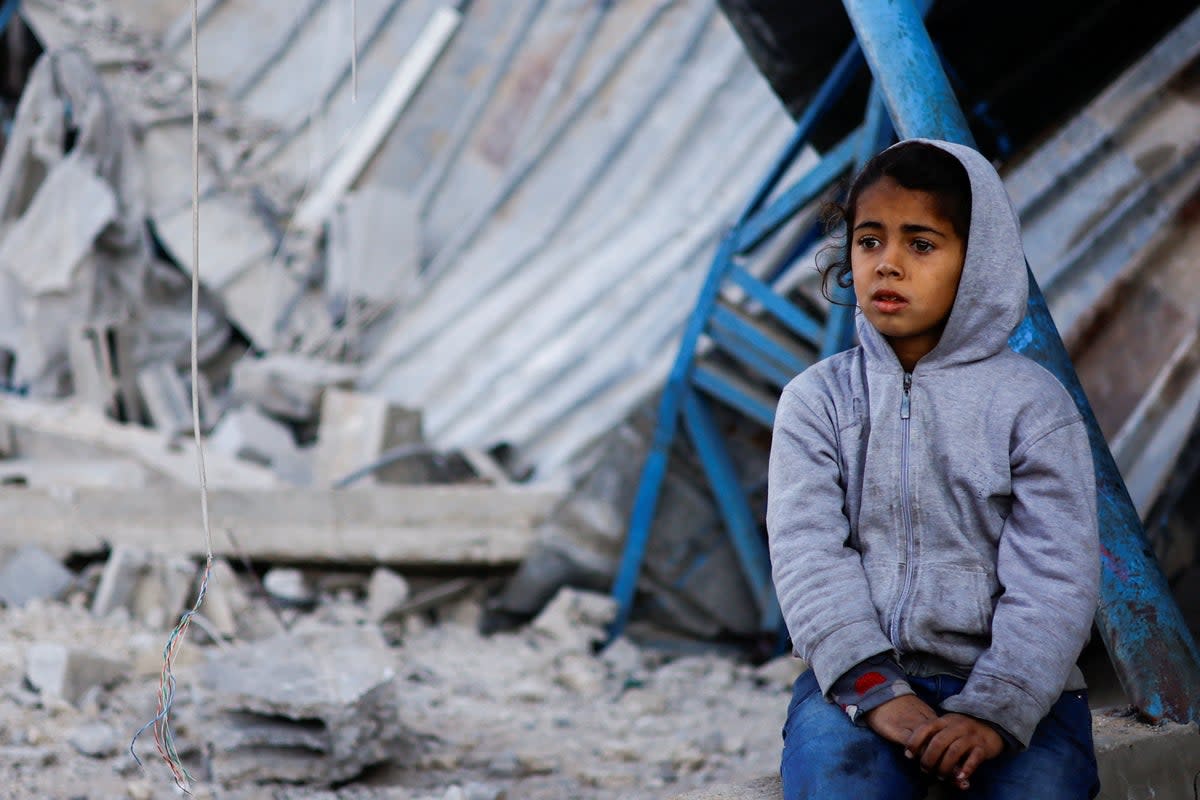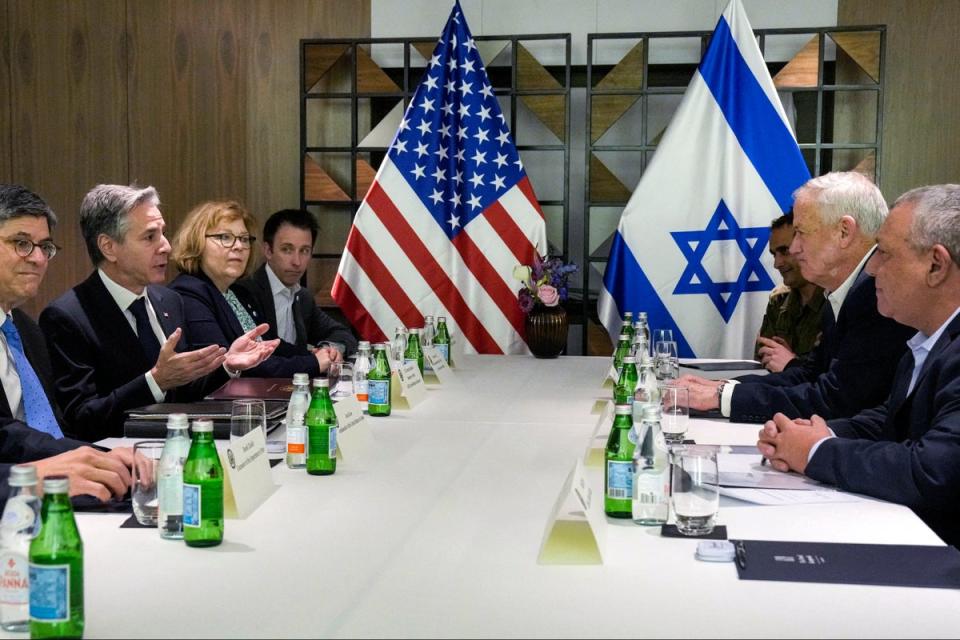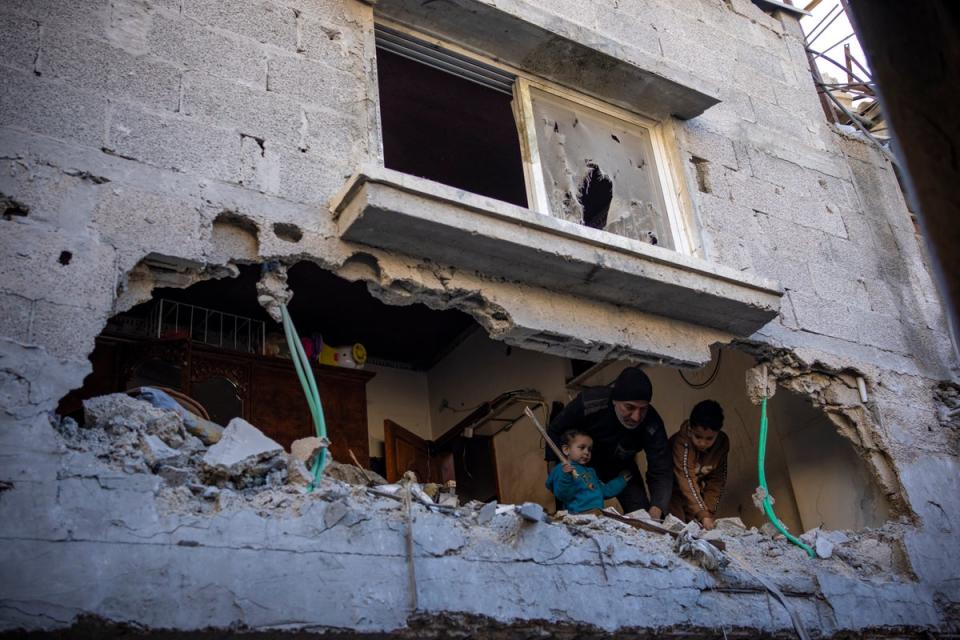Blinken leaves Middle East empty-handed again as fears grow over fate of Gaza’s last refuge

The US secretary of state, Antony Blinken, has left the Middle East empty-handed once again as US relations with Israel appear to be at an all time low. Driven further downwards by Israeli Prime Minister Benjamin Netanyahu dismissing a Gaza ceasefire plan - one the US said had merit – as “delusional”.
Blinken was in the closing hours of another furious visit to the region to try to broker a hostage truce, when Netanyahu declared negotiations with the Hamas militant group “were going nowhere”.
The Israeli premier promised they were months away from “total victory” and vowed his troops would press ahead with an offensive into Rafah, the last refuge for civilians in Gaza. This is despite warnings from Washington that it could trigger another devastating humanitarian crisis.
Blinken had spent days shuttling between Saudi Arabia, Egypt, Qatar and Israel, in his fifth attempt to bring a speedy conclusion to the disastrous war. The conflict which erupted after Hamas’ bloody 7 October assault on southern Israel, has pushed Gaza to the brink of collapse and threatened to trigger a region-wide war between the west and Iran-backed groups across the Middle East.
Blinken acknowledged a counter-offer truce deal presented by Hamas the day before had some “clear non-starters “ but believed “it creates space for an agreement to be reached” and the US would “work at that relentlessly until we get there”.
He said that the daily death toll in Gaza “remains too high" and that Israel must “strengthen civilian protection”.
“That’s especially true in the case of Rafah, where there are somewhere between 1.2 million and 1.4 million people, many of them displaced from other parts of Gaza,” he added.

In an apparent slap in the face, Netanyahu called the proposed deal bizarre and promised his army would push ahead in Rafah “soon”. On Thursday Israel bombed the southern city, which borders Egypt, killing 11 people according to residents who fear it is the start of an imminent ground offensive.
“Total victory over Hamas will not take years. It will take months,” Netanyahu said in his fiery speech delivered just before Blinken spoke.
“Victory is within reach,” he said.
Israel has imposed a crippling total siege and ferocious bombardment of Gaza yet in retaliation for the 7 October assaults by Hamas on southern Israel where they killed around 1,200 people and took over 250 people hostage.
The air and ground offensive into the tiny strip has killed more than 27,500 people according to Palestinian health ministry, the vast majority of which are women and children.
UN Secretary General Antonio Guterres warned that pushing into Rafah on the border with Egypt would "increase what is already a humanitarian nightmare with untold regional consequences."
It is now home to around 1.5 million people, five times its prewar population, the vast majority of families that have been displaced from across the destroyed 42-km-long strip.
ActionAid said on Thursday that families were so desperate they were reduced to eating grass amid desperate conditions in overcrowded shelters. It said an offensive on Rafah on top of this would be “disastrous” as infections and diseases are running rampant in overcrowded conditions.

Medecins Sans Frontieres (MSF) said that they had recorded the spread of suspected hepatitis A and high rates of diarrhoea as around 70 percent of the 2.3 million strong population in Gaza is drinking salty and contaminated water.
Displaced families in Rafah told The Independent that food prices had risen tenfold with a kilo of sugar now around £9.
“We are living in a makeshift tent in the grounds of a school,” said one young man who asked not to be named for security fears. He and his family, who are from the north of Gaza, had been displaced twice already and had no home to return to.
“The only hope we have is a ceasefire.”
In Israel, the families of those taken hostage by Hamas were also pushing a ceasefire fearing their loved ones were dying in the bombing.
Israeli intelligence admitted in a recent leaked report that as many as a fifth of the remaining 136 hostages believed to be in Gaza might already be dead.
Following Netanyahu’s statement, families of the hostages and those who had been held captive in Gaza held their own press conference in Tel Aviv and urged the authorities to agree to any deal to bring their loved ones home.
Adina Moshe, 72, who was captured from Kibbutz Nir Oz on 7 October and released after 50 days in captivity underground, said in tears “If you continue with the attempt to 'dismantle Hamas’, there won't be any hostages left to save."
Gil Dickmann, whose cousin Carmel, 39 is also a captive, told The Independent the families hoped that at least this proposed ceasefire deal “ignites negotiations and doesn’t lead to more dead hostages.”

 Yahoo News
Yahoo News 
